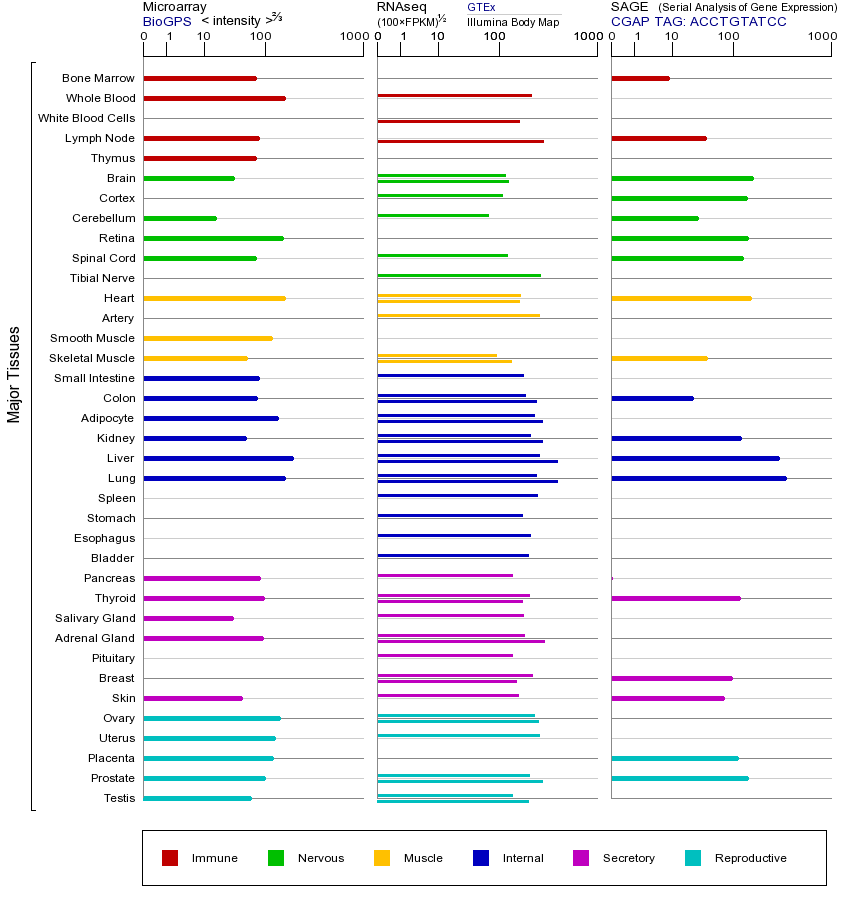IFITM3 (interferon induced transmembrane protein 3)
- symbol:
- IFITM3
- locus group:
- protein-coding gene
- location:
- 11p15.5
- gene_family:
- alias symbol:
- 1-8U|DSPA2b
- alias name:
- dispanin subfamily A member 2b
- entrez id:
- 10410
- ensembl gene id:
- ENSG00000142089
- ucsc gene id:
- uc001lpa.3
- refseq accession:
- NM_021034
- hgnc_id:
- HGNC:5414
- approved reserved:
- 2000-02-11
IFITM3(干扰素诱导跨膜蛋白3)属于IFITM基因家族,该家族成员(包括IFITM1、IFITM2、IFITM3等)均受干扰素诱导表达,具有抗病毒功能,尤其在抵御流感病毒、登革热病毒和埃博拉病毒等包膜病毒中起关键作用。IFITM3通过干扰病毒与宿主细胞膜的融合来阻止病毒进入细胞,其作用位点主要在细胞膜和内体膜上。该基因的突变(如rs12252-C等位基因)会导致蛋白功能缺陷,增加流感病毒感染风险,甚至引发严重并发症。IFITM3与多种疾病相关,包括病毒感染、癌症和神经退行性疾病。过表达IFITM3可增强细胞对病毒的抵抗力,但可能影响胆固醇代谢和细胞信号通路;而降低表达则使机体更易受病毒感染,并可能影响免疫反应。IFITM家族成员的共性是含有保守的胞内结构域,能通过改变膜流动性来抑制病毒入侵,且在免疫调节和细胞黏附中发挥作用。
The protein encoded by this gene is an interferon-induced membrane protein that helps confer immunity to influenza A H1N1 virus, West Nile virus, and dengue virus. Two transcript variants, only one of them protein-coding, have been found for this gene. Another variant encoding an N-terminally truncated isoform has been reported, but the full-length nature of this variant has not been determined. [provided by RefSeq, May 2012]
由该基因编码的蛋白质是一种干扰素诱导的膜蛋白,有助于赋予豁免权甲型H1N1流感病毒,西尼罗河病毒,登革热和病毒。两个转录物变体,只蛋白编码其中之一,已经发现了这种基因。编码N端截短同种型另一种变型已被报道,但该变体的全长性质尚未确定。 [由RefSeq的,2012年5月提供]
基因本体信息
IFITM3基因(以及对应的蛋白质)的细胞分布位置:
- 质膜
- 细胞质
- 细胞外
- 高尔基体
- 囊泡
- 细胞骨架
- 内质网
- 细胞核
- 内体
- 溶酶体
- 线粒体
IFITM3基因的本体(GO)信息:
| 名称 |
|---|
| Cytokine Signaling in Immune system |
| Immune System |
| Interferon alpha/beta signaling |
| Interferon Signaling |
| 疾病名称 | 关系值 | NofPmids | NofSnps | 来源 |
| Influenza | 0.242442977 | 10 | 1 | BeFree_CLINVAR_CTD_human |
| Colonic Neoplasms | 0.002995792 | 2 | 0 | BeFree_LHGDN |
| Ulcerative Colitis | 0.002909916 | 3 | 0 | BeFree_GAD |
| Virus Diseases | 0.001357209 | 5 | 1 | BeFree |
| Neoplasm Metastasis | 0.000814326 | 3 | 0 | BeFree |
| Breast Carcinoma | 0.000542884 | 2 | 0 | BeFree |
| Carcinogenesis | 0.000542884 | 2 | 0 | BeFree |
| Malignant tumor of colon | 0.000542884 | 2 | 0 | BeFree |
| Malignant neoplasm of breast | 0.000542884 | 2 | 0 | BeFree |
| Colon Carcinoma | 0.000542884 | 2 | 0 | BeFree |
联系方式
山东省济南市章丘区文博路2号 齐鲁师范学院 genelibs生信实验室
山东省济南市高新区舜华路750号大学科技园北区F座4单元2楼
电话: 0531-88819269
E-mail: product@genelibs.com
微信公众号
关注微信订阅号,实时查看信息,关注医学生物学动态。







